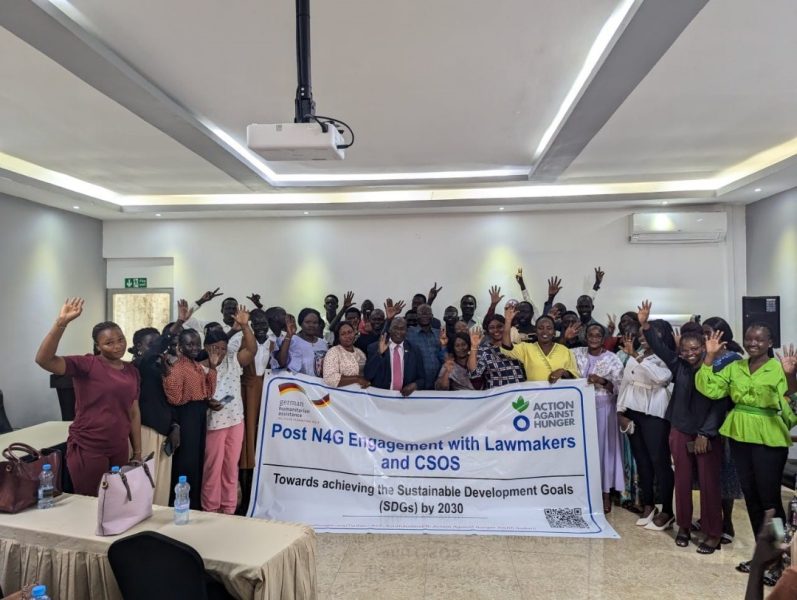
South Sudan is taking strides in the fight against malnutrition, convening a High-Level Consultative Forum on tackling the sale of therapeutic and nutritional foods.
The forum, held on June 3, brought together government officials, donors, businesses, and civil society organizations to make financial and policy commitments to improve nutrition outcomes as part of Nutrition for Growth (N4G)” initiative.
N4G is a global initiative focused on ending malnutrition in all its forms. It aims to create a world where everyone has access to adequate nutrition and is free from the consequences of malnutrition.
The discussions also include a national stakeholder dialogue on post-N4G financing for nutrition.
During the dialogue, participants addressed issues such as funding gaps for nutrition, the illegal sale of life-saving therapeutic food, and South Sudan’s commitments made at the 2021 Tokyo Nutrition for Growth (N4G) Summit.
After the conclusion of the forum, commitments include reducing child wasting from 16.2% to 5%, lowering stunting to 10% by 2030, and allocating 10% of the national budget to nutrition initiatives.
Despite a drop in nutrition-related budget allocations, from 9.6% in 2021 to just 1.3% in 2025, participants and parliamentarians pledged to renew their efforts. They emphasized the need to address the misuse of therapeutic food and to seek stronger funding for nutrition during the current budget session.
Civil society organizations, led by the SUN Civil Society Alliance and supported by the German Federal Foreign Office and the Right2Grow consortium, presented evidence of the unauthorized sale of therapeutic foods in urban markets. The evidence presented prompted immediate commitments to create a legal framework to combat the issue.
The stakeholder dialogue called for full implementation of the Maputo and Abuja Declarations, which include a 10% allocation for agriculture and 15% for health. It also emphasized the need for increased gender-responsive investments and the launch of a national Post-N4G Accountability Framework by the end of 2025.
Participants highlighted the importance of aligning South Sudan’s nutrition strategy with regional and continental initiatives, such as the African Union’s Agenda 2063 and the EAC Vision 2050.
The participation of partners such as the Dutch and French embassies, UN agencies, IGAD, and technical ministries showed renewed political commitment, accountability, and collaboration.
As South Sudan enters the post-N4G era, the joint efforts provide a clear path toward achieving a well-nourished and resilient population.

